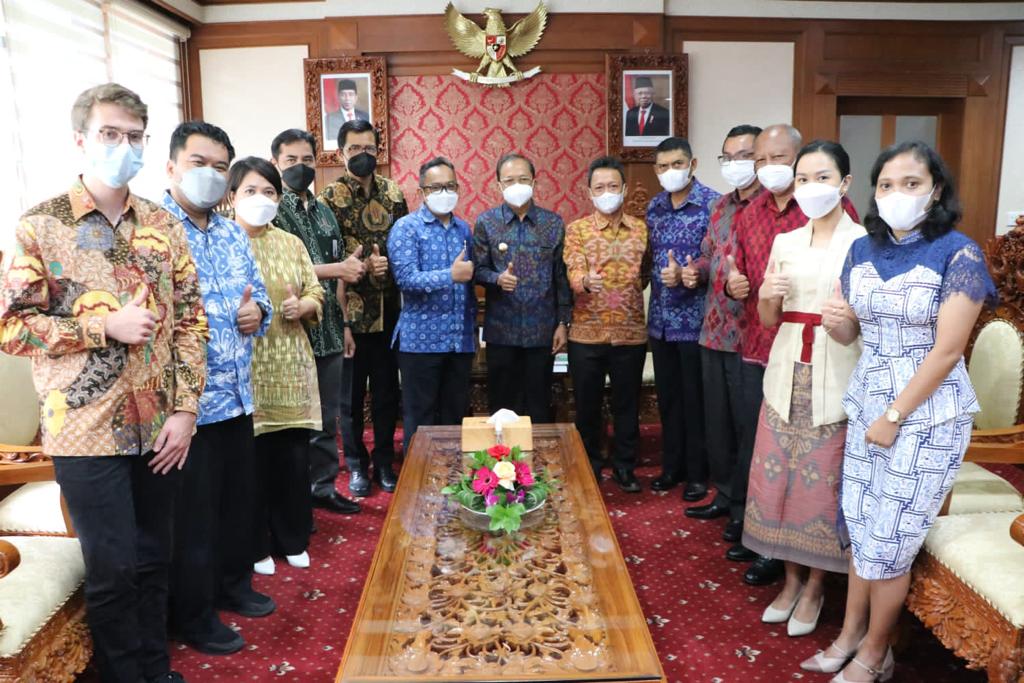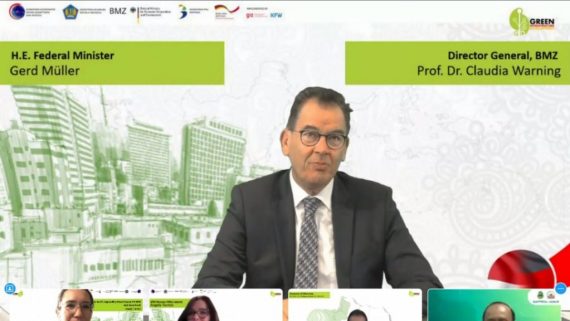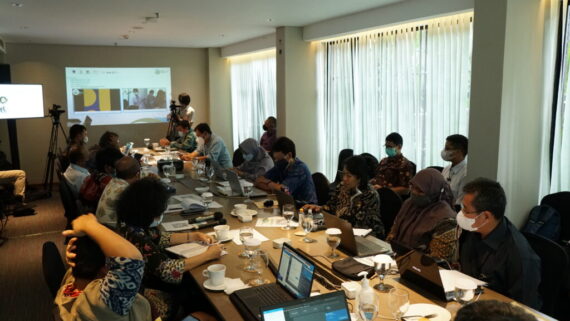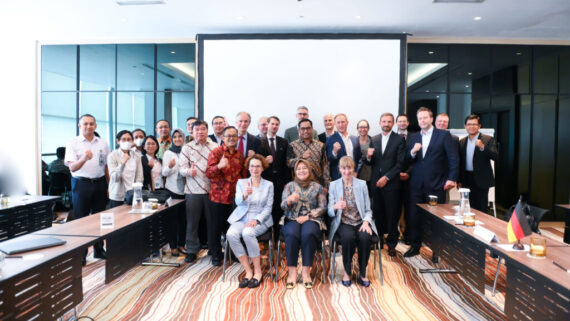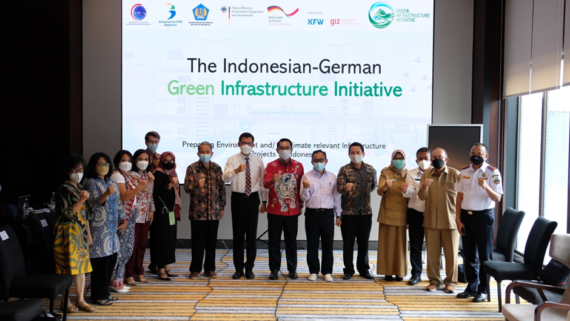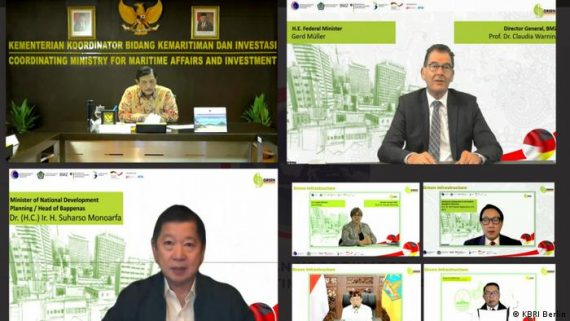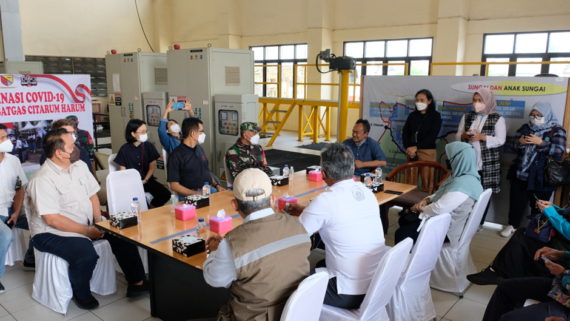Meeting The Governor of Bali Province, Coordinating Ministry for Maritime Affairs and Investment Discusses The Green Infrastructure Initiative
Coordinating Ministry for Maritime Affairs and Investment held a meeting with the Governor of Bali Province I Wayan Koster regarding The Green Infrastructure Initiative (GII). This meeting was held on November 15, 2021 and attended by a number of officials from both the central and provincial levels, namely Assistant Deputy for Watershed Management and Natural Resources Conservation M.Saleh Nugrahadi, Assistant Deputy for Waste and Waste Management Rofi Alhanif, Governor of Bali I Wayan Koster along with the other officials from Bali Province and technical consultants for GII, namely GIZ.
This meeting aimed to convey the progress of GII in Bali Province. On this occasion, the Coordinating Ministry for Maritime Affairs and Investment conveyed the latest news about GII, one of which was its presence at the COP26 event through the Indonesian Pavilion, where representatives from Indonesia and Germany revealed the features of GII compared to other types of initiatives.
“GII is unique, different from other initiatives. The uniqueness of this initiative is that Indonesia can determine for itself what infrastructure projects that Germany can or need to provide funding. The collection of these projects is carried out by provinces that are already partners in the GII ecosystem. That way, project development will be more targeted,” said Rofi Alhanif
In addition, The Coordinating Ministry for Maritime Affairs and Investment also revealed important points related to the implementation of GII in Bali Province, some of which were contributions to the management of TPS Suwung and directions from Bappenas regarding integrated low-carbon tourism in Nusa Penida. GIZ Provincial Advisor Thilma Komaling conveyed several things including TOSS replication, TPA revitalization, and reconditioning of 12 tourist destinations.
The Governor of Bali I Wayan Koster welcomed the initiative, the updates, and the information provided. I Wayan Koster also explained the steps that the Province of Bali had taken in managing the three sectors that were the focus of GII, namely solid waste management, water and waste water management, and public transportation in urban areas. He explained that there was a Governor’s Regulation (Pergub) No. 47 of 2019 concerning Source-Based Waste Management. This regulation stipulates that waste management is carried out at the source, namely households and in villages so that waste management is not centralized in city and district governments. He said that until now, TPST is a “best practice” in waste management.
“’My village is clean without polluting other villages’, that’s the motto. Applied in every village. So that not all waste ends up in the landfill unprocessed. Residents must be able to manage their own waste so that a clean environment is guaranteed”, said I Wayan Koster
I Wayan Koster also expressed the need for acceleration in waste management in the Denpasar, Gianyar and Bali areas. He targets that by 2023 there will be more than 400 villages that have TPS3R. In addition, he also approved the conversion of the Suwung TPS land into an educational park on waste management. For the water and wastewater management sector, he emphasized the need for the management of seven springs so that they can be used optimally for the community so that there will be no more drought due to water shortages in Bali Province. Meanwhile, in the public transportation sector, I Wayan Koster emphasized the need for clean energy in the use of transportation.
The meeting with the Governor of Bali is one of a series of GII events held in Bali. On this occasion, Kemenko Marves invited the relevant ministries/agencies to attend workshops on the solid waste management sector as well as visits to sites related to solid waste management and transportation.
Adding from the GII discussion, M.Saleh also discussed the status and management of lakes in Bali, especially Lake Batur and Lake Beratan, whose conditions are increasingly worrying. Responding to this, I Wayan Koster said that there was a need for firm action and a comprehensive solution for the perpetrators who installed cages in the lake so that they could stop doing these actions while maintaining their economy.
 English
English Indonesia
Indonesia
